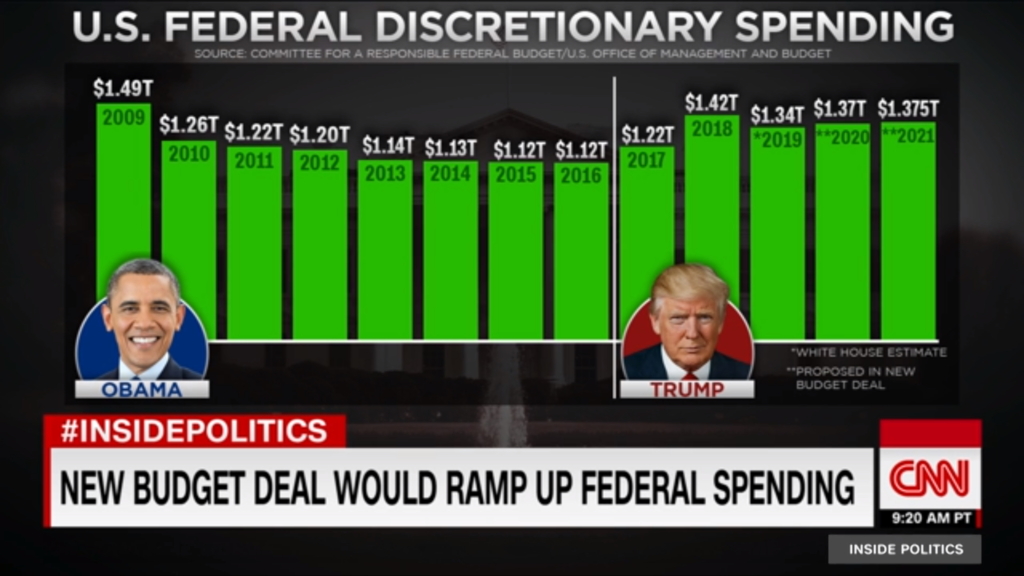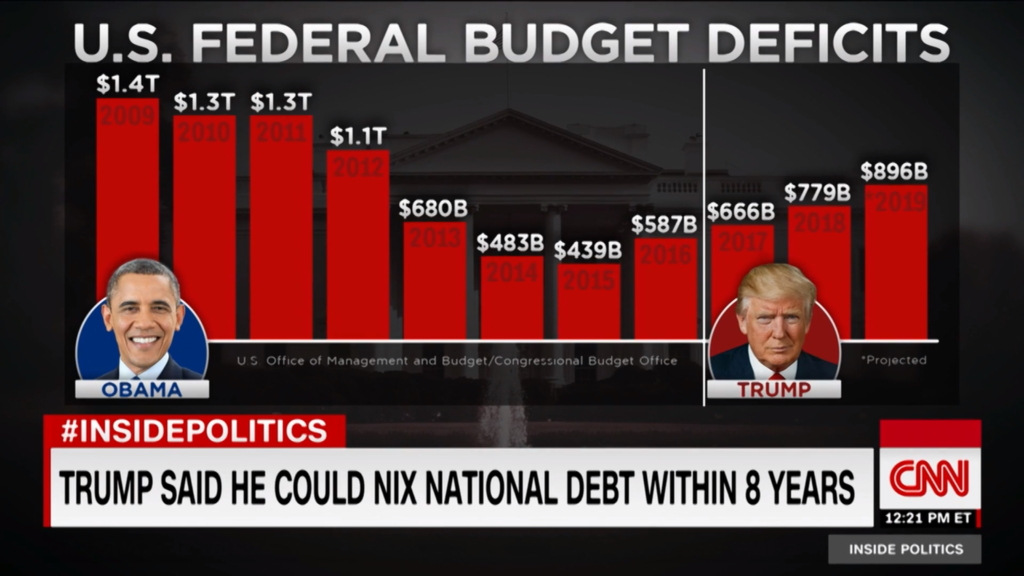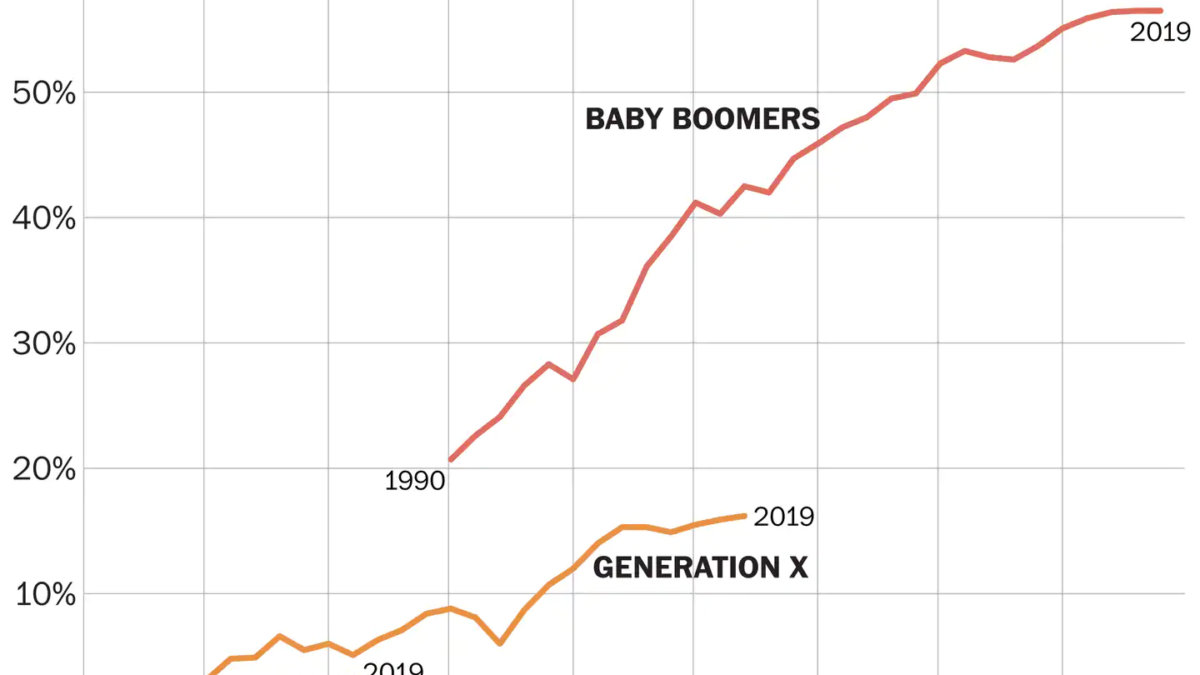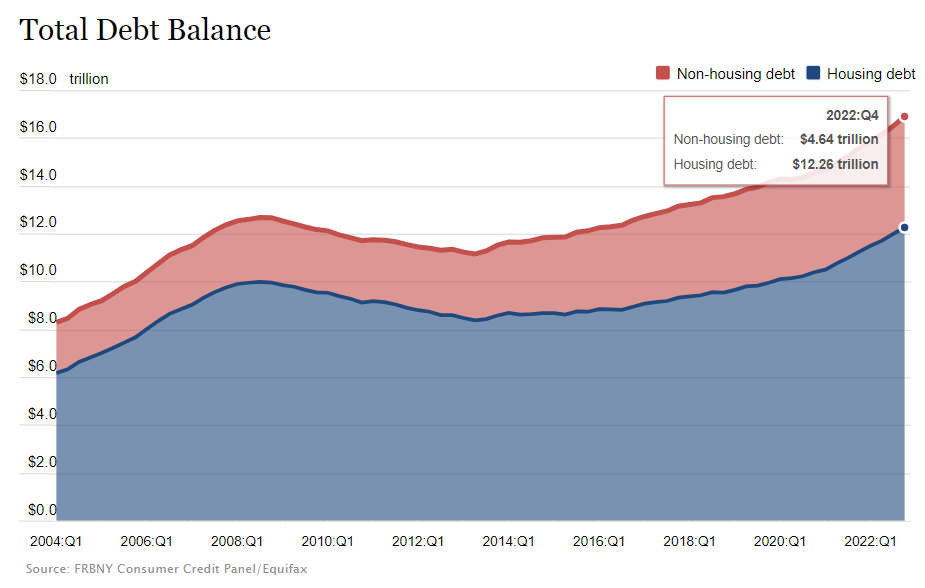U.S. deficit tops $1 trillion in 11 months, highest in 7 years – “Absent more responsible budgets, the deficit and interest costs will continue to grow rapidly, diminishing America’s future”
By Niv Elis
12 September 2019
(The Hill) – The U.S. government deficit surpassed $1 trillion in the first 11 months of the current fiscal year, over $100 billion more than the same period last year, according to official Treasury figures released Thursday.
Last week, data from the Congressional Budget Office (CBO) found that the 11-month deficit had surpassed $1 trillion, but it was expected to fall back under that threshold after an expected spike in tax payments in September.
The Treasury data, however, offered no such assurances, estimating that the fiscal year would close $69 billion above the $1 trillion mark.
The growing deficit, which adds to the nation’s debt burden, raises concerns about the nation’s fiscal health. Interest on the debt has cost the U.S. $379 billion this year, more than spending on veterans benefits, education and transportation.
“Absent more responsible budgets, the deficit and interest costs will continue to grow rapidly, diminishing America’s future. The longer we wait, the more costly and difficult it will be to put our nation on a stronger path,” said Michael Peterson, CEO of the fiscally conservative Peterson Foundation.
The CBO has called the nation’s fiscal path “unsustainable,” warning that it may make it more difficult to combat future recessions and could potentially set up a financial crisis down the road.
The main drivers of the deficit are mandatory spending programs such as Social Security, Medicare and Medicaid, though recent tax cuts and increases to discretionary spending have also widened the spending gap.
Although the deficit has ballooned under President Trump‘s watch – up from $587 billion in 2016 – Republicans have continued to speak out about the issue. [more]
Treasury: US deficit tops $1 trillion in 11 months

The U.S. deficit topped $1 trillion. The year’s not even over yet.
By Donna Borak
12 September 2019
WASHINGTON (CNN Business) – The US budget deficit widened to $1.067 trillion for the first 11 months of the fiscal year, an increase of 19% over this time last year, the Treasury Department reported Thursday.
The current shortfall exceeds the full-year deficit for fiscal 2018, which was $898 billion.
President Donald Trump, who promised during the 2016 campaign to eliminate the federal debt, has instead overseen a dramatic increase in deficits.
The White House’s Office of Management and Budget has predicted that the deficit will exceed $1 trillion for the entire fiscal year, which ends on September 30. On Monday, the nonpartisan Congressional Budget Office said the federal deficit had surpassed $1 trillion in the first 11 months of fiscal 2019, according to its budget review.
The last time the gap was that big was in 2012, in the aftermath of the financial crisis.
A number of factors are driving the US deficit increase, including the $1.5 trillion tax cuts signed into law by Trump in 2017 along with a massive spending package passed by Congress.
The deficit is expected to swell to $960 billion in fiscal 2019, according to the CBO’s latest report, and average $1.2 trillion in each of the next 10 years. The CBO raised its forecast for this year’s deficit by $63 billion after Trump signed into law a bipartisan two-year budget deal over the summer. [more]
The US deficit topped $1 trillion. The year’s not even over yet


